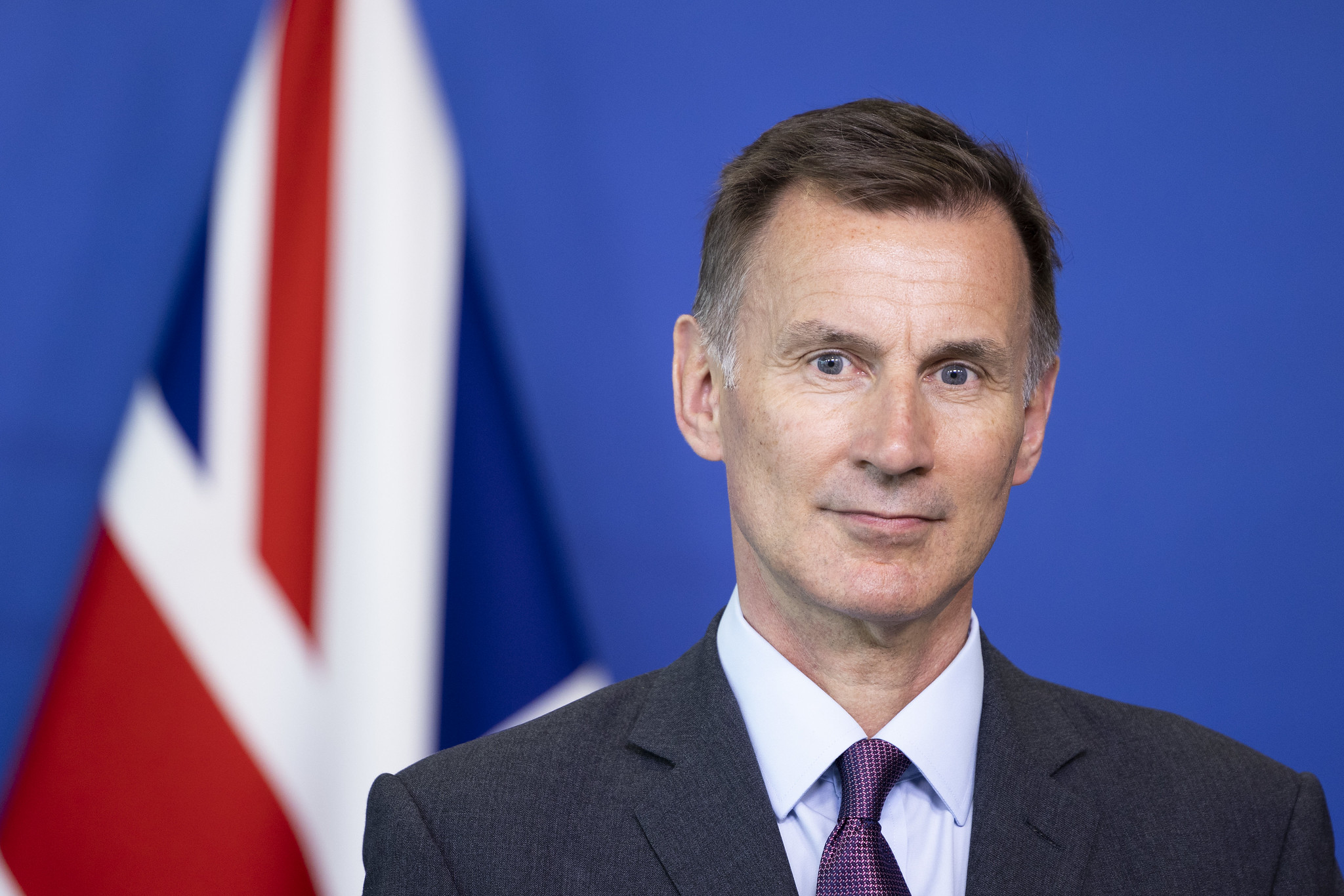 Simon Blake argues that the early years of the New Labour government showed great promise for those who campaign for high quality sex and relationships education in schools. However an overly hesitant approach ultimately stalled the process and the current situation is rapidly regressing, with young people in the UK set to suffer the consequences.
Simon Blake argues that the early years of the New Labour government showed great promise for those who campaign for high quality sex and relationships education in schools. However an overly hesitant approach ultimately stalled the process and the current situation is rapidly regressing, with young people in the UK set to suffer the consequences.
In the early days of the New Labour government, activists and campaigners involved in sex and relationships education thought all their birthdays had come at once. As Caroline Ray, then Information Officer at the Sex Education Forum wrote in a 1998 issue of Sex Education Matters, ‘As the Chinese proverb goes, may we live in interesting times, and we certainly are.’
The first parliamentary session after New Labour took office saw frenetic policy development and implementation. Major national initiatives including the National Healthy School Standard and the Teenage Pregnancy Strategy created space for sex and relationships education (SRE) to take the stage. Gay rights progressed particularly relating to young people; Section 28, the pernicious, badly formed legislation relating to books and teaching resources was repealed; and the age of consent was equalised.
In the first decade of the 21st century SRE improved significantly, primarily through the well resourced and well coordinated teenage pregnancy and healthy schools strategies.
The Sex Education Forum (SEF) is the national authority on SRE. SEF has always been central to establishing best practice, facilitating the debate, achieving consensus and influencing the evolving policy agenda. As Director of the Sex Education Forum between 1999 and 2002, I co edited a special issue of Sex Education with Rachel Thomson, herself a Director of the Forum from 1989–1995. So between us we had been, and continued to be, closely involved in the evolving SRE policy agenda through both Conservative and New Labour governments. In the editorial we described a fundamental shift that had taken place with New Labour whereby ‘young sex’ and teenage parenthood was no longer being discussed in terms of morality but rather understood as being about exclusion and vulnerability.
We argued that the ground was set for effective delivery of SRE at local level: we had largely positive guidance on SRE in schools, clear and tested case law that upheld young people’s rights to confidential sexual health services including those under 16, Section 28 had been repealed in 2003, and there was a recognition that SRE played an important part in tackling teenage pregnancy and sexually transmitted infections including HIV.
All the right moves were made but New Labour remained stubbornly opposed to making PSHE (Personal, Social, Health and Economic) education, the subject through which SRE is taught, a statutory curriculum subject. Despite repeated recommendation from otherwise influential groups such as the Teenage Pregnancy Independent Advisory Group and the Sexual Health and HIV Independent Advisory Group, New Labour refused to make PSHE statutory when they had the chance to do so without political backlash from the electorate.
Children and young people’s voice is a powerful catalyst for change and the Sex Education Forum started involving young people systematically to provide a platform for young people’s voices to be heard in policy making. In this tradition the UK Youth Parliament identified SRE as one of their priorities and undertook and published research showing the majority of young people thought their SRE was inadequate.
This formed the basis of excellent youth led lobbying which in turn led to a national PSHE review after which Jim Knight, then Minister for Schools, announced government would make PSHE a statutory subject. Two further unnecessary PSHE reviews later (Independent review of making Personal, Social, Health and Economic (PSHE) education statutory and DfE’s forthcoming review) PSHE as a statutory curriculum subject is extremely unlikely.
Had New Labour acted quickly on their commitment to make PSHE a statutory subject within the National Curriculum in 2008 history may have been very different. But they were too hesitant to turn commitment into reality and stalled the process with a completely unnecessary review.
Statutory PSHE got caught up in the political horse trading that took place in the pre election wash up of parliamentary business in 2010. This ‘wash up’ marked the beginning of a time during which SRE has become re-politicised within national education policy and the media; the quality and quantity of SRE will be determined by leaders at local level; SRE is not being adequately recognised as part of the solution to ‘crisis sex’ and ‘early sexualisation’ and ‘sex on the internet’ problems.
With a change of government in 2010 we have quickly returned to a time when whether, what and how SRE is delivered is determined by individuals and bodies at a very local level.
As we approach 2013 it is clear that many of those old battle lines about young people, sex and SRE are being redrawn. Discourses of teenage sexual behaviour and in particular teenage parenthood are again being characterised in terms of morality. And some of the old debates about whether SRE causes early sexual activity and whether young people should have the right to contraceptive advice and treatment without their parents knowledge are re-emerging.
Whilst significant progress has been made in establishing broad based support for SRE amongst teachers, parents, public and young people, the current policy and political approaches and ideologies in education, health and beyond on issues such as sexualisation of children and internet controls are ushering in an era in which SRE in schools will be increasingly seen as either marginal and irrelevant or – worse – problematic.
Rachel Thomson described these policy tensions in the Thatcherite government as ‘moral rhetoric versus public health pragmatism.’ Now, as then, across government SRE is held up on the one hand as vital to reducing teenage pregnancy, sexual exploitation and HIV, and on the other as a sensitive issue that must only be delivered after disproportionately careful negotiation between school and parents, and the repeated view that SRE is a time sponge which acts as a critical barrier to improving academic attainment. It does of course take time, but how can you learn if you do not have the skills to work as part of a team, or you are worried about what is happening to your body, or being bullied because you have had sex, haven’t had sex etc.
And whilst it is true that the coalition government problematises young people and sex, the reticence to improve SRE must be seen in the context of wider political discourses. First the drive for localism means central government devolves responsibility for policy making. Local areas determining their priorities means teenage pregnancy, a primary driver for improvements in SRE throughout the noughties, is no longer a national strategy with local targets. Similarly the National Sexual Health and HIV Strategy has run its course, and whether sexual health or HIV remains a priority will be locally determined.
Secondly, schools are being ‘freed up’ from both Local Authority and National Curriculum requirements. Academies and free schools are able to determine much of their own curriculum and the National Curriculum is being reviewed in its entirety. In this context people like me calling for PSHE to be statutory has probably never seemed more irrelevant, and advocates for quality SRE are going to have to find different and localised policy responses to achieving the goal of all children receiving their entitlement. That does not mean it is wrong to call for statutory PSHE, but rather we must ensure it does not prevent us making progress in other ways.
Right now the Department of Health probably offers our best hope of securing children and young people’s entitlement to SRE in schools. The independent Children and Young People’s Health Outcomes Forum recommended the National Curriculum Review ensure that the improvement of health becomes a statutory aim of the National Curriculum and Public Health England has a public health interest in ensuring that children and young people are educated so they can both enjoy and take responsibility for their sexual choices.
With each year that PSHE continues to be patchy – excellent in some schools and ok or poor in too many – we fail to provide thousands of young people with the core skills, knowledge and values to manage their lives now and in the future. Brook’s own research last year showed that young people still think SRE simply isn’t good enough. We cannot allow another generation of children and young people to grow up with shame, embarrassment and fear about their bodies, about relationships and about sex. That is wrong, that is immoral and it goes against the UN Convention on the Rights of the Child, which the UK signed up to in 1990.
Note: This article gives the views of the author, and not the position of the British Politics and Policy blog, nor of the London School of Economics. Please read our comments policy before posting.
Simon Blake OBE is Chief Executive of Brook. Brook is the UK’s leading provider of sexual health services and advice for young people under 25. For more information see Brook’s website or Twitter feed.








1 Comments